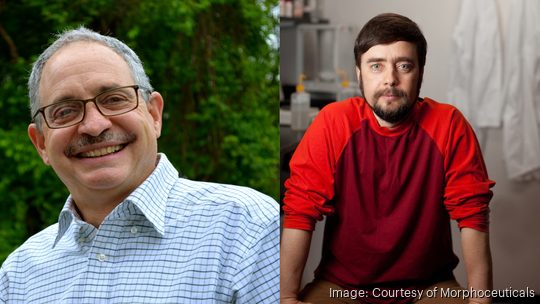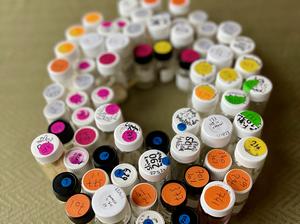
Human limb and organ regeneration seems like the stuff of science fiction. But in the labs of Tufts University professors Michael Levin and David Kaplan, it’s becoming a reality.
Last January, Levin and Kaplan, alongside researchers at Harvard University, published a study in Science Advances that demonstrated limb regeneration in an African clawed frog. The team said this was the first demonstration of functional limb regeneration in a species that doesn’t have spontaneous regeneration of limbs in adulthood.
The Tufts researchers are the scientific founders behind Morphoceuticals Inc., a startup that aims to develop the technology for regenerating limbs and organs and repairing tissues. Today the company announced the close of an $8 million early-stage venture funding round led by Prime Movers Lab and initial investor Juvenescence.
“Some things never escape the lab. And I think it’s really exciting to have these insights and have some of these things come out of the laboratory. Our goal in funding it and getting into this space is really to see these insights turned into therapies,” said Prime Movers Lab Venture Partner Amy Kruse. She will be joining the company’s board.
How to regrow a limb
Levin, the Vannevar Bush professor of biology at Tufts and associate faculty member of the Wyss Institute, has been working in this field for years, said Michael Hufford, the interim CEO of Morphoceuticals.
In a 2020 TED Talk with close to one million views, Levin describes this “bioelectric layer” that exists in the body. Levin says that all cells in the body communicate with electrical signals. Morphoceuticals is targeting this network of communication, taking a bioelectric approach to kickstart morphological changes in cell groups.
“Morphoceuticals is fundamentally working with nature. It’s really trying to understand the bioelectric networks and the bioelectric programs that made us form our anatomical bodies in the first place,” Hufford said. “And then it’s really trying to program and retrigger them to exert therapeutic effects.”
The startup has already proven its approach has promise in African clawed frogs. The researchers amputated the leg of an African clawed frog and delivered electroceuticals — therapeutic agents that target neural circuits — via a wearable bioreactor on the frog’s hind leg for 24 hours. Within 18 months, the frog regrew a functional leg with new skin, bone, vasculature and nerves.
Kaplan, the Stern family professor of engineering at Tufts, built the wearable devices that helped provide a hydrated and controlled environment at the stump site for the treatment.
“We really are triggering an innate biological program because you’d be challenged to find another area of medicine where a 24-hour exposure to a therapeutic exerts an 18-month effect,” Hufford said.
Building a regeneration platform
Hufford said the company’s new seed funding will help them pursue two different tracks. The first will be testing new electroceutical combinations for limb regeneration and amputation stump health.
“As someone that spends a lot of time interacting with the FDA, regenerating a whole limb is very, very exciting, but it also raises some challenging regulatory issues,” Hufford said.
Morphoceuticals will first focus on using its therapies to improve stump health for amputees.
The company’s larger vision is on developing its drug discovery platform. The AI-driven engine that Levin has developed is called BETSE — Bioelectric Tissue Stimulation Engine.
“BETSE can look at a voltage atlas of tissues and can help predict, by opening or closing which ion channels, can you transform a diseased tissue back to its healthy state,” Hufford said. “That’s when you get into potential applications around organ regeneration … hair follicle regeneration, even aging.”
Hufford declined to share how many full-time people Morphoceuticals employs, but said it plans to open a small lab later this year, likely in Medford near the Tufts campus.
And the team is already working on transferring its approach from frogs to mammals. Hufford said. Levin’s lab at Tufts has spent this year doing small-mammal research. He said they’re “very pleased with the preliminary data” coming out of this work and they plan to meet with the FDA to find the best preclinical models for future testing.
“If you have any interest in life science at all, it’s hard not to find the work that Mike and David are doing incredibly compelling,” Hufford said.
Sign up for The Beat, BostInno’s free daily innovation newsletter from BostInno reporter Hannah Green. See past examples here.








